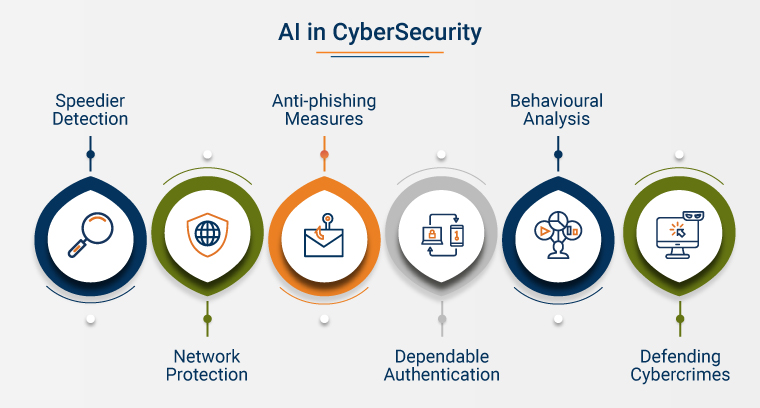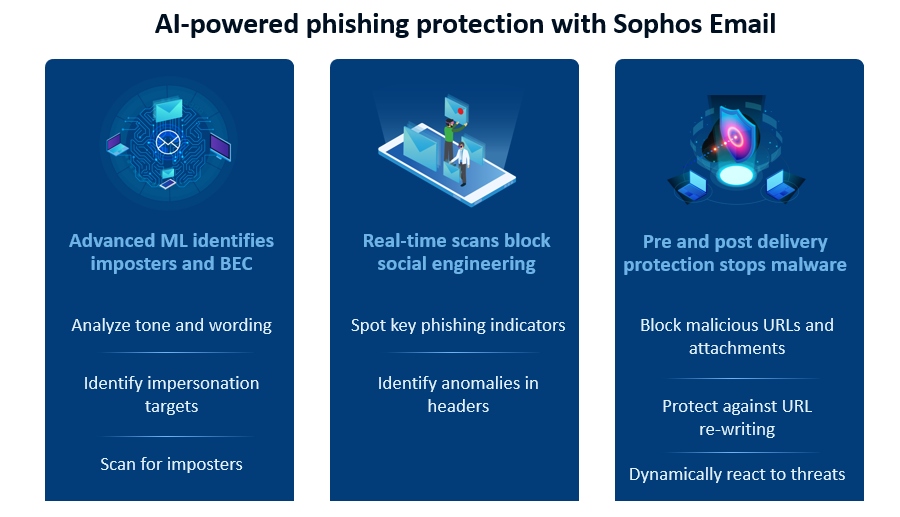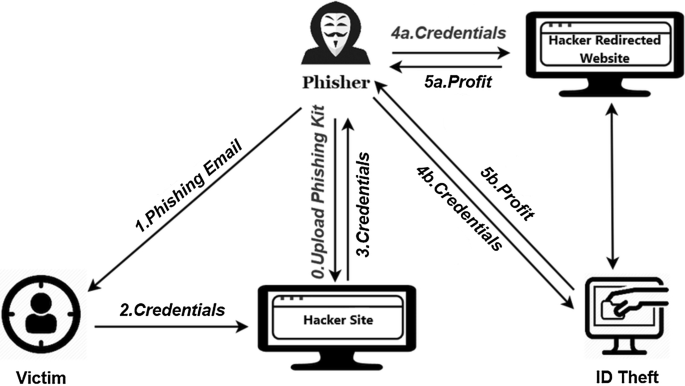Comments
- No comments found

In an era where technology dominates our daily lives, cyber threats have become increasingly sophisticated and dangerous.
Phishing attacks, in particular, have remained a constant menace, causing significant financial losses and data breaches for individuals and organizations alike. To combat this growing threat, artificial intelligence (AI) has emerged as a powerful tool to prevent phishing attacks.

Source:
Phishing attacks involve the use of deceptive tactics to trick individuals into revealing sensitive information such as login credentials, credit card numbers, or personal data. These attacks often come in the form of convincing emails, messages, or websites that impersonate legitimate entities, making it challenging for users to distinguish between genuine and malicious communication.
Here is how AI is revolutionizing cybersecurity by proactively detecting and thwarting phishing attempts.

Source: Sophos
AI-powered email filtering systems are designed to scan incoming emails for suspicious content and sender behavior. Machine learning algorithms analyze various attributes of an email, including sender details, subject lines, and content. By comparing these attributes to patterns associated with known phishing attacks, AI can flag potentially malicious emails for further review or quarantine, preventing them from reaching the recipient's inbox.
Phishing attacks often involve manipulating language to deceive recipients. AI-driven NLP models can analyze the text within emails, identifying inconsistencies, misspellings, or unusual language patterns commonly found in phishing attempts. This technology can accurately detect subtle deviations from normal communication, raising red flags for cybersecurity teams.
AI systems have access to vast repositories of real-time threat intelligence. They can analyze global cyber threats and adapt their defenses accordingly. When a new phishing technique or pattern emerges, AI quickly learns to recognize it, providing proactive protection against evolving threats.
AI systems can continuously monitor user behavior within an organization's network. By establishing a baseline of normal activity, AI can identify deviations that may indicate a phishing attempt. For example, if an employee suddenly attempts to access a sensitive database from an unfamiliar location, AI algorithms can flag this as suspicious behavior and trigger security protocols.
AI can also play a role in educating users about phishing risks. AI-driven chatbots or virtual assistants can provide real-time guidance to employees, helping them recognize potential threats and providing best practices for safe online behavior.

Source: Springer Link
While AI holds tremendous promise in preventing phishing attacks, it is not without challenges:
Adversarial Attacks: Cybercriminals are increasingly sophisticated and can adapt their tactics to evade AI-based defenses.
False Positives: Overzealous AI systems may flag legitimate emails as potential threats, leading to user frustration and reduced efficiency.
Evolving Threat Landscape: Phishing techniques are continually evolving, requiring AI models to stay up-to-date and adaptive.
As phishing attacks continue to threaten individuals and organizations, the role of AI in preventing these threats becomes increasingly vital. AI's ability to analyze vast amounts of data, detect subtle anomalies, and adapt to emerging threats makes it an invaluable ally in the ongoing battle against phishing attacks. By integrating AI-driven cybersecurity solutions, individuals and businesses can significantly enhance their defenses and safeguard sensitive information in an increasingly digital world.
Leave your comments
Post comment as a guest